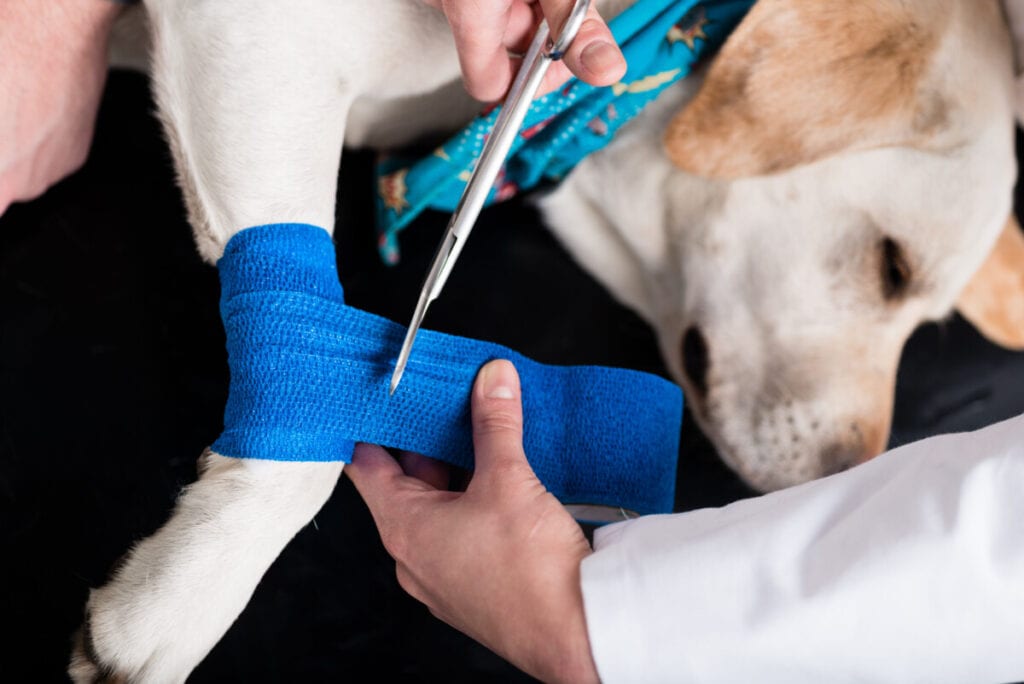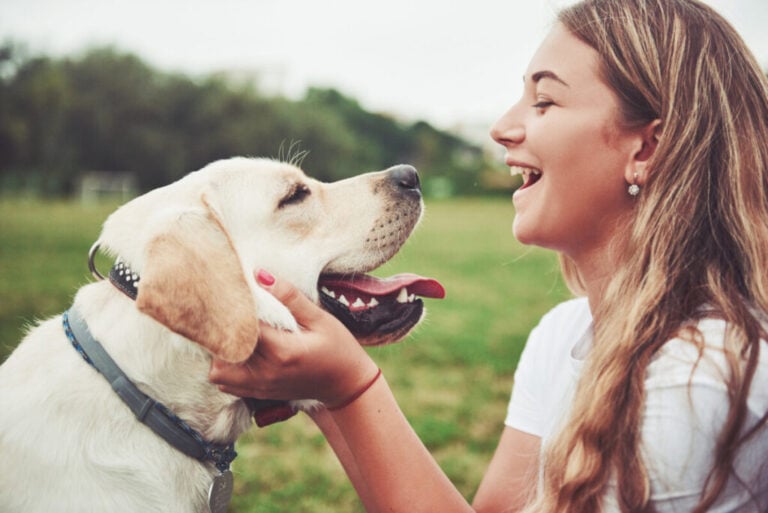What Problems Do Labradors Have? (Solved!)
Hello dog lovers! Are you looking for a new best friend? Maybe you’re considering getting yourself a labrador! These wonderful dogs are great for active families who love lots of puppy cuddles! But no dog is perfect. Are there any issues that are prevalent in labs?
Labrador retrievers have health problems related to hip or elbow dysplasia, dental disease, obesity, and retina atrophy. Their behavioral problems are hyperactivity, neediness, and sometimes anxiety. Most Labrador problems can be treated by a veterinarian or at home.
A lot of these problems are preventable, or at least curable. Whether you want to learn more about the common problems labs could have, or you have a lab that has an issue you suspect is one of those we’ve listed, this is a great place to find out more! However, always check with your veterinarian before treating your dog.
Dental Disease
This condition isn’t unique to Labradors. All dogs are susceptible to dental disease. This is because their teeth often don’t get cared for as much as we would care for our teeth. Just like with human teeth, dog teeth collect plaque which can harden into tartar if left for too long.
This tartar can infect the gums and cause pain, inflammation, and eventually tooth loss. To prevent these issues from happening to your beloved pet, it is important to take your Labrador to the vet for a tooth cleaning regularly. You can also buy dog toothpaste to brush their teeth with daily.
There are specially engineered foods you can buy that might help prevent or remove tartar, but the single best thing you can do for your dog’s teeth is to brush them every day. A dog’s mouth is one the most important parts of its body, and it’s important that we, as dog lovers and owners, take good care of our dogs’ teeth.
Fractured Teeth
Another dental issue that is common in dogs is fractured teeth. Labs especially love to chew on all sorts of things, even if the toy could break their teeth. Bones, antlers, and ice cubes are all hard substances that put dogs at risk for broken teeth. If a tooth is broken, it provides a direct path for bacteria to enter the gums and cause infections. Take care of your dog and their teeth by giving them chew toys that give a little and brushing their teeth at least once a day!
Obesity

Labradors are fairly easy to train because they will do almost anything for a treat. They are seemingly always hungry and therefore are always looking for food, even if their body doesn’t need it. This unfortunate genetic condition makes Labradors especially susceptible to obesity.
Obesity means more than just a lot of unnecessary weight. All that fat can put stress on joints and necessary organs. Heart problems and digestive issues are common in obese dogs and humans. Labs are already susceptible to joint problems in their hips and elbows, so they don’t need the extra weight bearing down on them.
How Can I Prevent Obesity In My Lab?
You can go for a walk, play fetch, or do another activity that will take your lab’s attention off of how hungry they are. That way, you won’t have to stare guiltily at those sad pouty eyes when you don’t give your pet the food they want. Follow your vet’s suggested amount of food for your Labrador, and avoid giving them more than they need. (Source)
No matter how intense those huge pleading eyes are, you don’t have to give in. Giving your lab table scraps, extra treats, or allowing them to eat anything they find in the yard can increase their risk for obesity. Learn to say no to your pet, no matter how cute they are.
Dysplasia
It’s sad, but many labs inherit dysplasia in their hips or elbows. This condition means that their joints have developed improperly. This can lead to arthritis, which can be painful for your furry friend. They might have trouble getting up or walking.
While this particular problem is genetic and can’t be prevented, other joint problems that are common for labs can be easily avoided by simply keeping them active and not feeding them too much. Again, labs are always ready to eat, so you have to be the judge of when they’ve had enough.
Other Joint Problems
Other than dysplasia, your lab is also susceptible to a torn ligament. This type of injury of the knee is very common in active dogs. This can be treated with surgery and physical therapy but is always best to avoid the issue entirely rather than treat it. Help your lab avoid such injuries by keeping them at the right weight and giving them high-quality food.
Sometimes, Labradors might also have trouble with cartilage attaching to the bones in their joints. This can be painful and cause problems with activity in the future. Only feed your Labrador puppy the suggested amount of food each day so they don’t grow too fast for their cartilage!
Common Behavioral Issues

Labrador retrievers were bred to be service dogs. They are energetic and always ready to help. This can create a lot of benefits but can be problematic as well, depending on your lifestyle.
Energy
When we say that labs have a lot of energy, we mean it. If you don’t provide outlets for them to release their energy, they will develop bad habits that help them do this. Before getting a lab, be sure that you can provide the amount of attention and physical activity that they need.
Chewing
One habit labs can develop when they don’t have time or space to be active or helpful is chewing. They will chew on everything from your slippers to your couch. It helps them curb their boredom and curiosity. If you want to avoid this, play with them! Send them to fetch the newspaper or a ball. They just want to be doing something.
Eating Poop
Sometimes labs get in the habit of eating poop. They might do this out of curiosity, hunger, or a lack of nutrition. Since labs are always hungry, the best thing you can do to stop this tick is to train your dog that it’s bad. Keep a clean living space for your Labrador and get rid of any poop. Make sure that your dog is getting all the nutrients they need from you so they don’t have to resort to eating poop.






